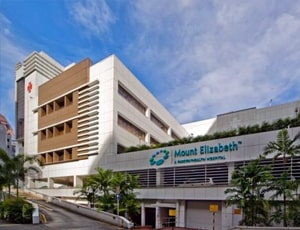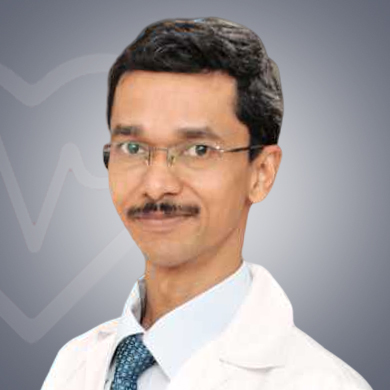A heart transplantation is required in patients with a diseased heart. It is often recommended to patients whose heart function does not improve even after surgeries and continuous and prolonged use of medications. During the heart transplant procedure, the diseased heart is replaced with a fully functional heart. The heart used for replacement is retrieved from a patient who is brain-dead but is still on a life support system.
Because of the unavailability of a sufficient number of brain-dead donors, heart transplant surgery is still a rare procedure, even though it is a life-saving procedure. Moreover, there are just a handful of families who agree to donate the heart of their close ones because of aesthetic reasons. Even though heart transplant procedure is a major one, the chances of survival after the surgery is generally good. However, heart transplant survival rate largely depends on how well the patient has been taken care of after the surgery. Heart transplant surgery is mostly performed in patients with heart failure, which may happen because of any of the following conditions:
Heart transplantation surgery is often coupled with the transplant of some other organ in patients with specific conditions. These organs may include kidney, liver, or lung, depending on the condition of the patient and the ailment he or she is suffering from. Not every heart patients, however, is eligible to undergo the heart transplant surgery. Patients with a previous history of cancer, a major illness that would anyway shorten their lifespan, active infection, advanced age, or unhealthy lifestyle habits are not recommended to undergo heart transplant surgery.
Depending upon the exact waiting time for the transplant, you may have to start preparing weeks, months, or years before the scheduled day for heart transplant surgery. The following are some of the major things that you may expect to happen in the preparatory phase:
You will be required to undergo an extensive evaluation before the actual day of transplant. During the evaluation, a team of doctors will evaluate your overall physical, mental, and emotional fitness to undergo the surgery. A number of physical and other tests will be conducted to check for your fitness levels. During the evaluation, the doctors would confirm that you do have a condition that would improve after heart transplantation. The decided against it if the condition can be treated with the help of less aggressive and less serious interventions such as cardiac bypass or valve replacement.
They also check whether you are fit to and can actually wait to receive the donor heart, which, in some cases, may take a few years. The main motive of the evaluation phase, however, is to confirm that you are healthy and fit enough to handle the surgery and the post-surgery recovery phase.
Waiting for a donor’s heart may take a long time. Some patients, if lucky, are able to find a donor within a few days or weeks, while others may have to wait for month. Once you are approved to undergo heart transplant during the evaluation phase, you are listed among patients who are waiting to receive a donor’s heart. During your waiting period, you will be advised to attend the cardiac rehabilitation guidance program offered by the hospital so that you can set your expectations related to post-surgery recovery.
As soon as a donor becomes available, certain characteristics of the patient are matched with that of the donor to see if the donor’s heart is suitable. Some of these factors include blood type, size of the heart, and antibodies that may have developed. Some of the other factors that are considered at this time include the number of days spent on the waiting list or whether there is a patient who critically needs a donor heart than you.
You will be asked to reach the hospital as soon as the donor’s heart has been transported. You should pack your bag with extra clothing and medications. Additionally, make sure to have a support system around you in the form of close family members and friends. Make necessary arrangements with your insurance providers in advance.
The following steps are typically performed during the heart transplant surgery:
You may expect to receive a couple of medications after the surgery to ease the pain. You may also be kept on a ventilator for a few hours or days to ease beating. Additionally, a chest tube may be put to drain fluids from the chest. You may also expect to receive fluids through IV following the surgery.
Recovery after heart transplantation surgery is slow. You will be required to visit the surgeon for frequent follow-ups. They will advise you to undergo a series of tests every time you visit, including echocardiograms, electrocardiograms, and blood tests. You will also be required to undergo heart biopsies to check for signs of organ rejection. During a biopsy, a pathologist will look into a tiny heart tissue under a microscope. Additionally, you will be required to make several long-term adjustments into your schedule after you’ve had a heart transplant. You will be required to take immunosuppressants and make adjustments for medications. You will require an intensive emotional support during cardiac rehabilitation. Therefore, make sure to have your near and dead ones around you during the recovery phase.
You will also be advised to make several adjustments to your lifestyle to speed up recovery. This includes guidelines pertaining to exercising, healthy diet, sunscreen use, and tobacco consumption.
Heart transplant surgery is an extremely sensitive procedure that must only be performed by an experienced surgeon. Because it is a critical procedure and the success of it depends on how well it has been performed, heart transplant surgery costs more than a majority of other cardiac procedures. Some of the countries that are popular for heart transplant surgery include India, Thailand, Hungary, South Korea, the UAE, Poland, and Thailand. The cost of a heart transplant in India is much less than any other country in the world, including the top medical tourism destinations.
Heart transplant surgery cost in India depends on a number of factors. Some of these factors include the following:
| Treatment cost in Heart Transplant Cost in India: | 100000 |
| Treatment cost in Heart Transplant Cost in Turkey: | 180000 |
| Treatment cost in Heart Transplant Cost in Singapore: | n/a |
| Treatment cost in Heart Transplant Cost in Israel: | n/a |

Delhi, India
Equipped with more than 50 specialty institutes, Indraprastha Apollo was started with the vision of ...more
![]() Private Driver / Limousine Services
Private Driver / Limousine Services
![]() International Cuisine
International Cuisine
![]() Phone in Room
Phone in Room
![]() Online Doctor Consultation
Online Doctor Consultation

Singapore, Singapore
Mount Elizabeth Hospital is a multispecialty healthcare facility operated by Parkway Health. The hos...more
![]() Private Driver / Limousine Services
Private Driver / Limousine Services
![]() International Cuisine
International Cuisine
![]() Phone in Room
Phone in Room
![]() Online Doctor Consultation
Online Doctor Consultation

Cardiac Surgeon
Delhi, India
20 Years of experience
USD 32 for video consultation
Q: Who can donate heart after death?
A: Brain-dead people from any age-group can donate a heart. However, whether you can donate a heart or not depends on the presence of certain medical conditions at the time death. For example, brain-dead patients with a diseased heart may not be suitable for a heart donation.
Q: How long do patients with heart transplant live?
A: The survival rate of patients after one, two, and five years of a heart transplant is around 87, 77, and 57 percent.
Q: What is the quality of life after a heart transplant?
A: Quality of life after a heart transplant is generally good but it depends on your rate of recovery. The chances of survival after heart transplant surgery are good. You will have to make several adjustments in your medications and dietary schedule to be able to live a quality life after a heart transplant.
Q: What is the total heart transplant surgery time?
A: Heart transplant procedure may take around four hours to complete. However, the total heart transplant surgery time depends on whether some other organ is being transplanted along with it.